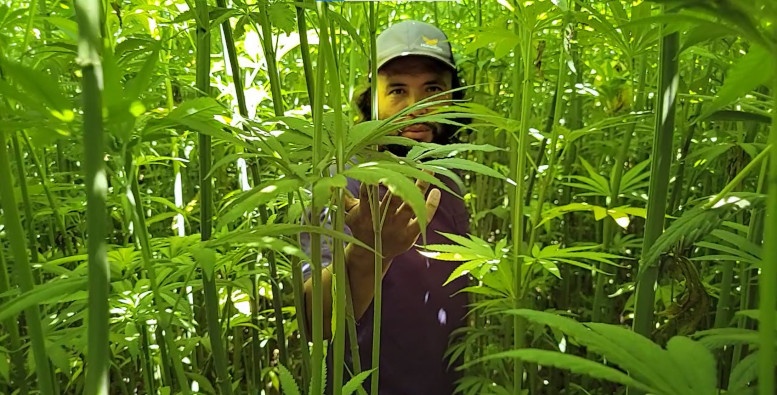An initiative in California has planted five hemp varieties from four countries in the first extensive growing trials for hemp fiber and grain in the state since the 1990s. The project is a joint effort among the World Cannabis Foundation (WCF), legacy U.S. hemp wholesaler Hemp Traders, and Oklahoma-based processor Western Fiber.
In addition to checking the varieties’ performance under different planting dates and sowing methods in hot-weather and cool-weather cycles, yields from this year’s first farm-scale crops will be processed for sale, said Tony de Veyra, president at WCF.
Factory in works
The group is also repurposing a cotton gin to process hemp that will be installed in a fiber production facility under Riverdale Hemp Factory, a new entity set up to process hemp stalks into technical fiber and hurd.
Larry Serbin of Hemp Traders said the Riverdale factory will source hemp from Canada, China, and Oklahoma and other U.S. states while California grown feedstocks develop, starting with the yield from this year’s trials.
The fiber and grain trials in central California are also the first since hemp was legalized in California in 2017. Fiber varieties in the 2021 trials are Chin Ma, a Chinese strain, and the Polish variety Bialobrzeskie. Grain varieties include Katani, Canada; Henola, Poland; and Hlesia, Ukraine.
Biochar study
Western Fiber is also in a group that will study the effects of biochar on hemp cropping systems under a $25,000 grant from the U.S. Department of Agriculture received by de Veyra. That project, financed under USDA’s Sustainable Agricultural Research and Education program, is set to begin a two-year run in October. It will examine crop yield and performance, and changes in soil nutrient and carbon levels as a result of applying biochar and compost to the soil.
Hemp has been identified as having high potential as input for production of biochar, charcoal produced by firing plant biomass in the absence of oxygen. It sequesters carbon and provides soil health benefits.
Quantifying carbon
The project will also track changes in soil carbon levels in an attempt to quantify the amount of carbon sequestered through a combination of hemp, cover crops, no-till management and biochar compost.
Alan Hancock College, Santa Maria, California, and the Pennsylvania-based Rodale Institute, a nonprofit that supports research into organic farming, are also partners on the USDA-supported biochar research project.
World Cannabis Foundation will host a field day and factory tour July 31. The event will also feature presentations by a panel of hemp experts.

